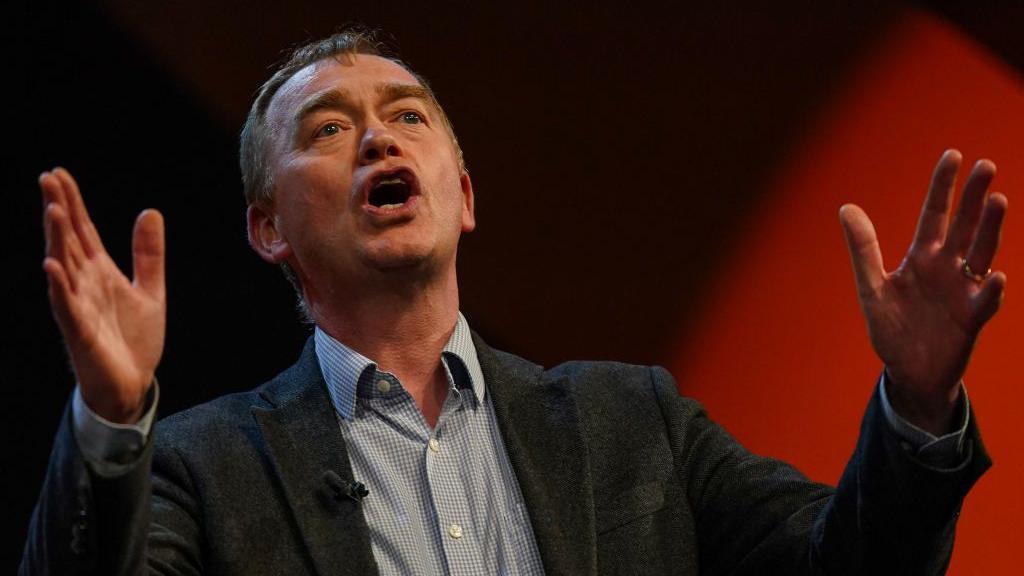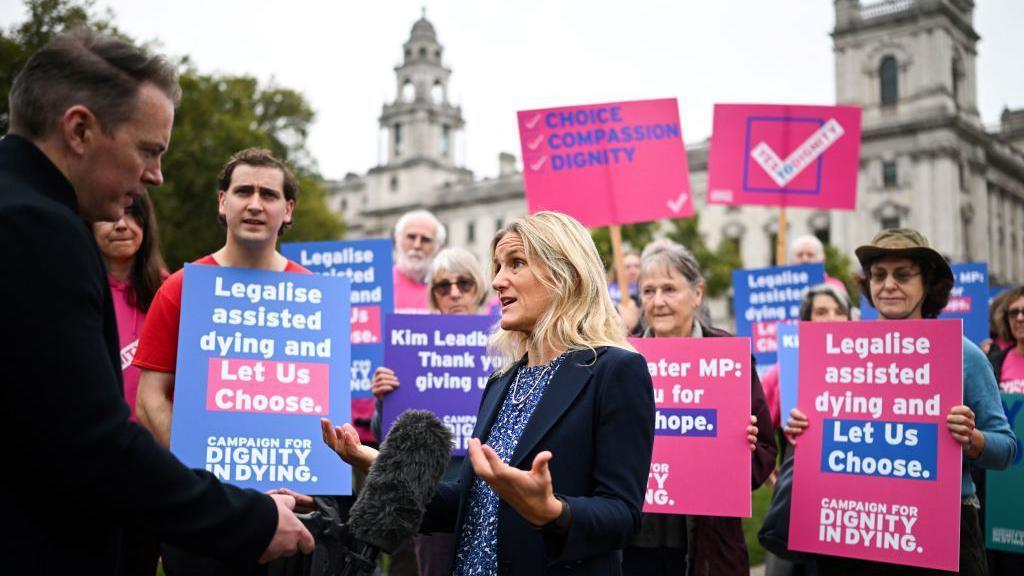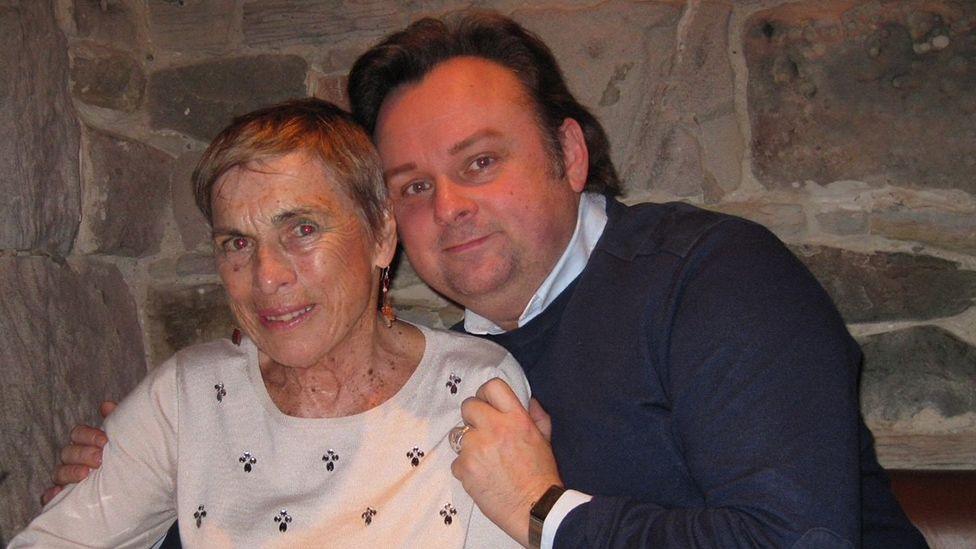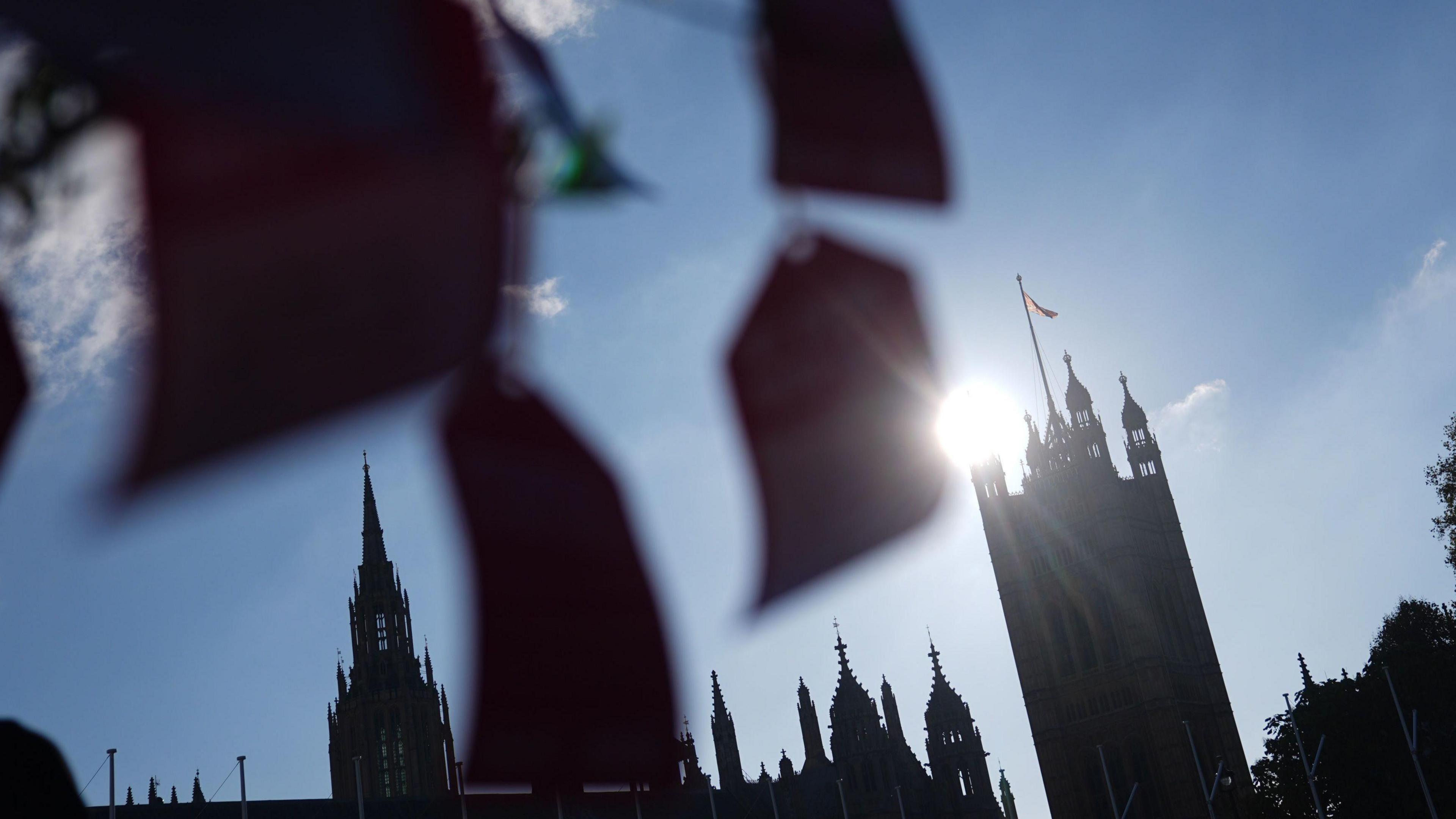Assisted dying bill poses 'serious threat' - MP

Tim Farron believes it is not possible to guard against coercion
- Published
Former Liberal Democrat leader Tim Farron is to vote against proposals to legalise assisted dying, warning it could pose a "serious threat" to vulnerable people.
The measure, being debated in Parliament on Friday, could allow some terminally ill people in England and Wales to have a medically assisted death.
Farron, MP for Westmorland and Lonsdale in south Cumbria, said he had concerns it would be "impossible" to include safeguards to prevent people being coerced.
MPs will get a free vote, meaning they can follow their conscience rather than party orders.
The private members bill is being sponsored by Labour MP Kim Leadbeater who has described it as the most "robust" in the world, with "three layers of scrutiny" in the form of a sign-off by two doctors and a High Court judge.
However, Farron claimed evidence from other countries that have legalised the practice "strongly suggests that it is impossible to build in effective safeguards to prevent vulnerable people opting for an early death due to coercive control, self coercion or in desperation due to a failure of society to provide adequate palliative care or pain control".
The main country he references is Canada, where more than one third of people opting for assisted dying (35.3%) gave the reason for choosing to die that they felt they were a burden on others, external.

The bill has been sponsored by Labour MP Kim Leadbeater (centre)
Fellow Cumbrian MP Michelle Scrogham, who represents Barrow and Furness for Labour, said she remained "open-minded".
She said she would continue to listen "carefully" to the case being made from both sides and welcomed "all input", according to the Local Democracy Reporting Service.
“Whilst I am not opposed to reform in principle, I strongly feel that any changes to the law would need to include serious and proper safeguards," she said.
"I think we also need to carefully consider the implications for our NHS which is already under considerable strain after years of underfunding and how we look at our palliative care provision."
What does the bill propose?
The bill says anyone who wants to end their life must:
be over 18, live in England or Wales and have been registered with a GP for at least 12 months
have the mental capacity to make the choice and be deemed to have expressed a clear, settled and informed wish, free from coercion or pressure
be expected to die within six months
make two separate declarations, witnessed and signed, about their wish to die
satisfy two independent doctors that they are eligible - with at least seven days between each doctor's assessment
A High Court judge must hear from at least one of the doctors and can question the dying person or anyone else considered relevant.
After the judge has made their ruling, a patient would have to wait another 14 days before acting.
A doctor would prepare the substance being used to end the patient's life, but the person would take it themselves.
It would be illegal to pressure or coerce someone into declaring they want to end their life, carrying a possible 14-year prison sentence.
Both the British Medical Association, external, which represents doctors, and the Royal College of Nursing, external have neutral positions on assisted dying.
Follow BBC Cumbria on X, external, Facebook, external, Nextdoor and Instagram, external. Send your story ideas to northeastandcumbria@bbc.co.uk.
Related topics
- Published25 November 2024

- Published25 November 2024

- Published18 November 2024
